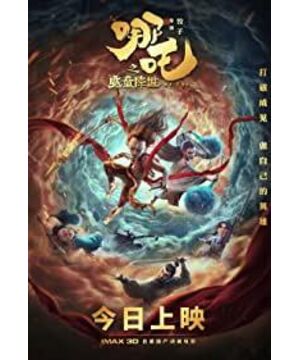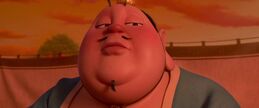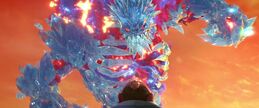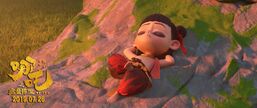Every time I think of a talent show, I will think of a sentence: "Tell me, what is your dream?" Then the contestant will start to perform affectionately, telling him how difficult and sad he is, and the audience under the stage also It was very fitting, with tears streaming down her face, sobbing hard, and then, the contestant finally began to sing after the heartache..., what? Ugly? nonexistent. There was thunderous applause from the audience, and they shouted: "Give him full marks! Give him full marks!..." "Magic Boy" also fits this situation. No matter how high the box office, marketing account, and various platforms are, no matter how crazy they are. It can't be changed that it is an exaggerated and inflated work. Why do I say this? I have read a paper in which the researcher used the stories of the contestants in "The Voice of China" as the material for statistics, and found that they are mainly classified into these seven types of events, as shown in the following figure:
After comparing with "Magic Child", it is surprising to find that there are many similarities. Official news, the screenwriter and director of "Magic Child" also have a rough life experience. The spirit of "Magic Boy" (letting aside whether it corresponds or not) changed the fate. Corresponds to the frustrations and dreams of the picture. And Nezha's tears are not understood, and the national culture of the hometown in the picture corresponds to the rise of Guoman, the light of Guoman, etc., in waves of praise, without feeling the cunning of commercial films and hypocrisy. 1. Regarding the theme "Magic Child" is still an old-fashioned storyline in the final analysis. It is disguised with an attractive, old IP, and an old bottle of another old wine is not much innovative. The theme of "The Devil's Child", "My life is up to me, I can't help it" is seriously inconsistent with the story it narrates. What I see the most is - "My life is up to my father, but the sky", the change of Nezha's fate is Because of Li Jing's help, rather than his resistance to fate, there is only a formalism of "my destiny is up to me". When he learned that the villagers were disgusted and afraid of him, he gave up on himself. When he learned that the Lingzhu was reincarnated, he began to learn to slay demons and eliminate demons; when he learned that the magic bead was reincarnated, he released his demonic nature to bring harm to the villagers; when he learned that his parents loved him, he came back with Ao Bing. A war to save the people of Limin. The whole process is passive, and it is seriously derailed from the theme. It is not an inspirational film that turns against the sky. I don't know if the director deceived it deliberately to attract young audiences, or his level is limited. 2. About the character of the magic child Mo Tong is not only a bear child, but also a second-generation official bully. In the case of unequal power, information, and status, the villagers, as a vulnerable group, in a year and caused by catching the drool monster, it is not too much to describe the devil boy as a bully. Just in the image of a bear child, the second-generation bully of the official, the director forced him to become a hero where all the villagers knelt down on one knee, which is unacceptable to me. Why do I say rude? Let me first ask Nezha if it is possible to sacrifice himself for the villagers (or parents)? The official description in detail is that he has worn a cape and has had the desire to become a hero since he was a child. Well, what I want to ask is that there are many children who have worn capes and imitated Ultraman to fight little monsters. ,, Can each bear child sacrifice himself to protect his parents and protect the villagers? Does he have the courage? From the analysis of his environment, Nezha will be killed by thunder after three years, so he has been doted on by his mother since childhood. A child whose destiny is completely controlled and interfered by the outside world, without any thoughts of his own, a child who depends entirely on his parents and With the help of friends, I am accustomed to others serving him, and I am accustomed to selfish children. If there is a situation where he needs to stand up to replace his parents' lives or sacrifice himself to save everyone, as far as the plot is concerned, I don't think the rich second generation can do it. The successful people on the Internet are not pampered, and they all have experienced very painful self-breakthroughs. His image was not portrayed to the point where he could persuade others to kneel, but he wrote it sloppily. It is so sad and unfortunate that such a work is touted as such.
View more about Ne Zha reviews










